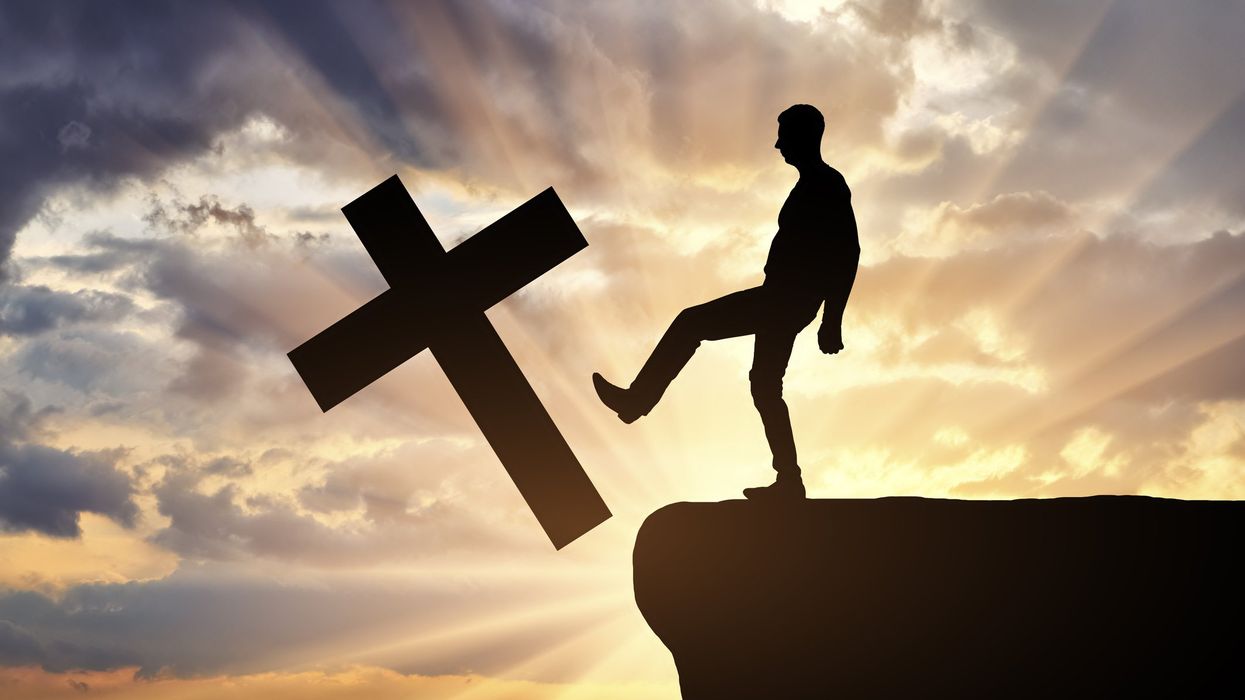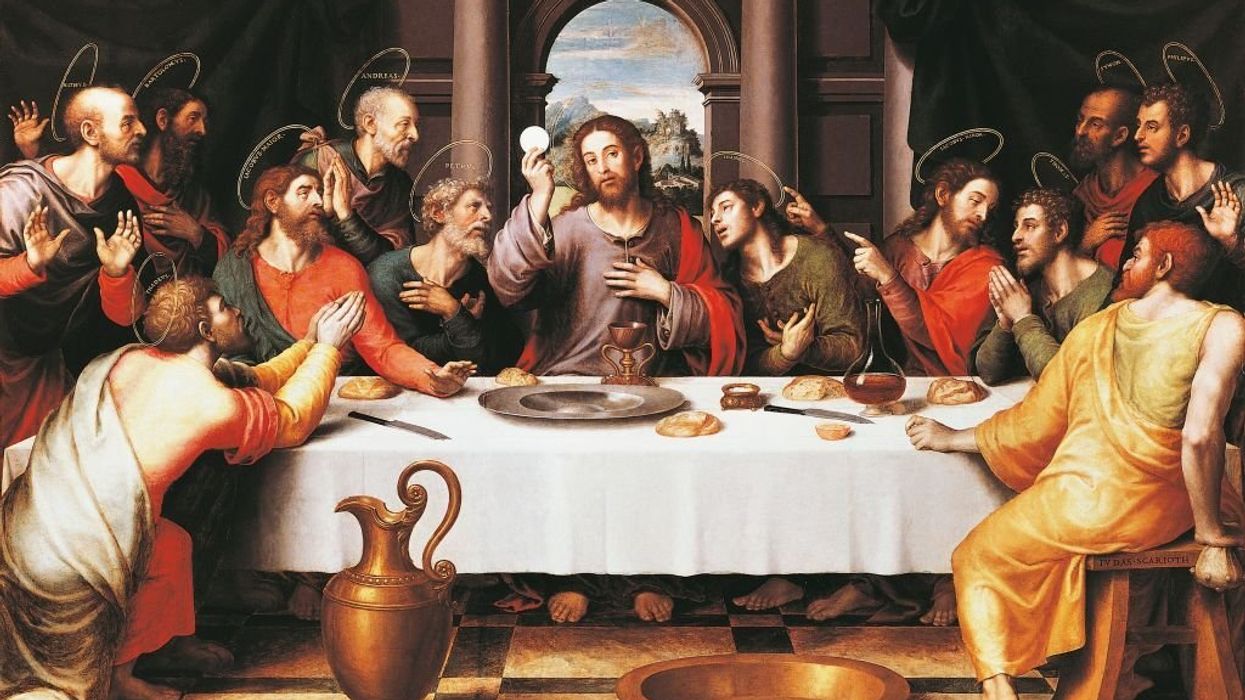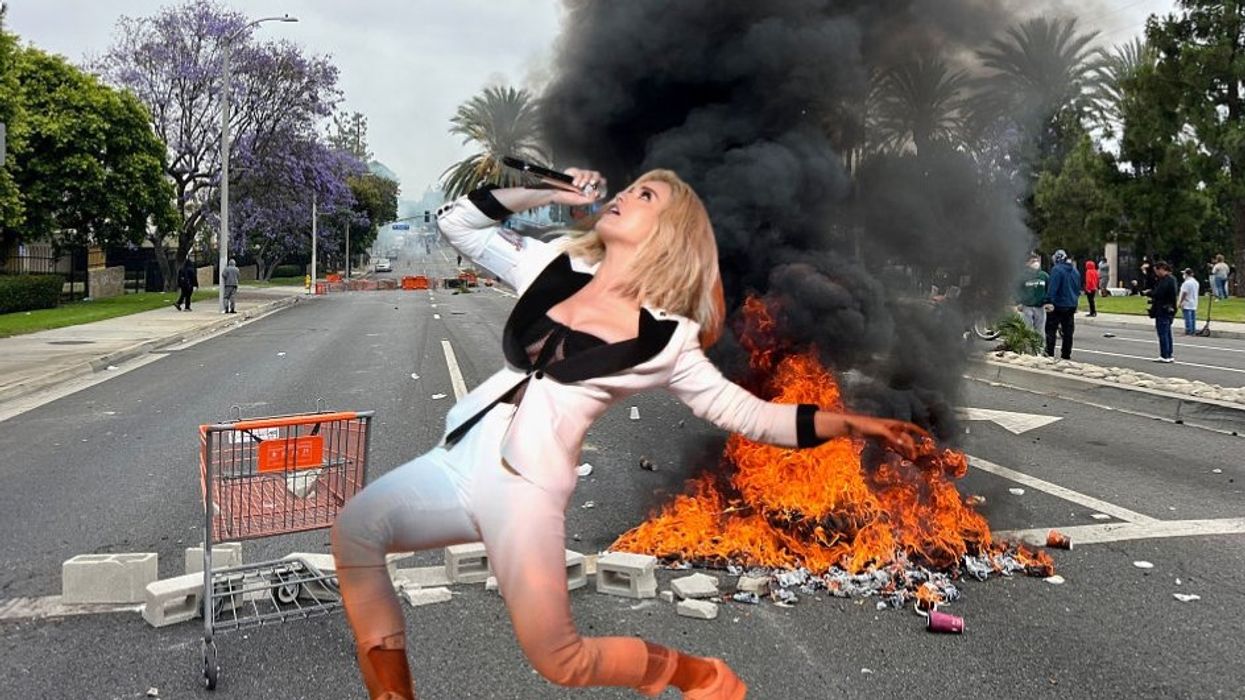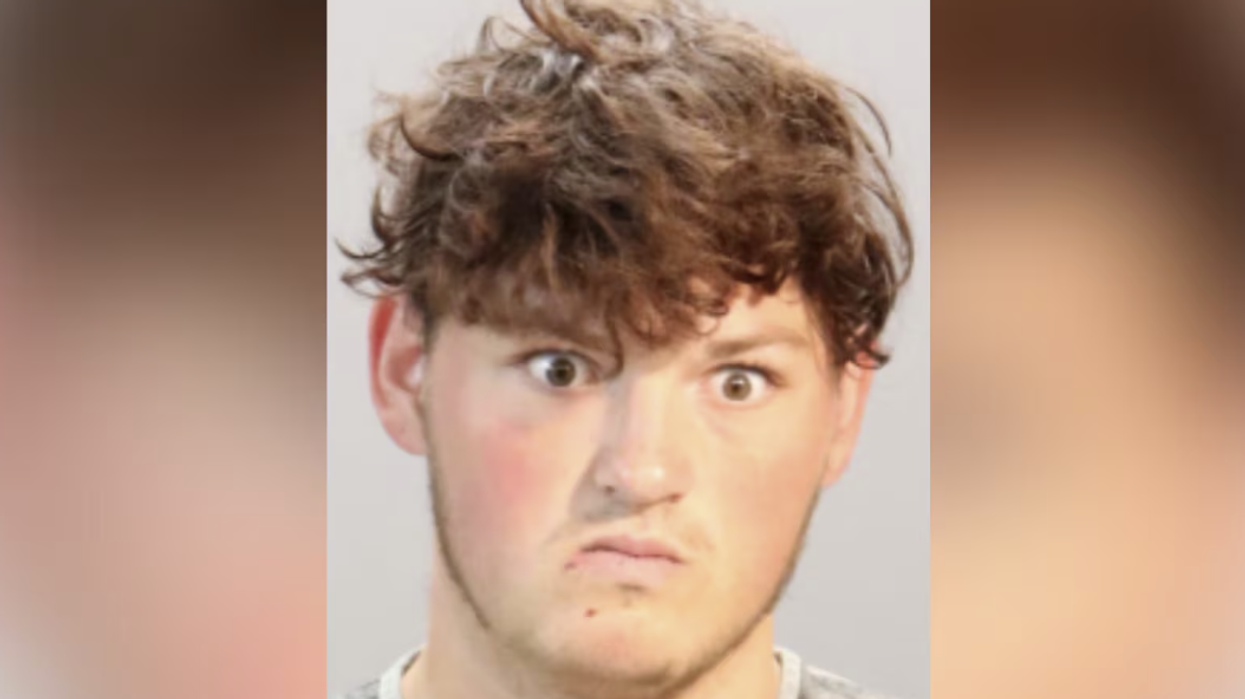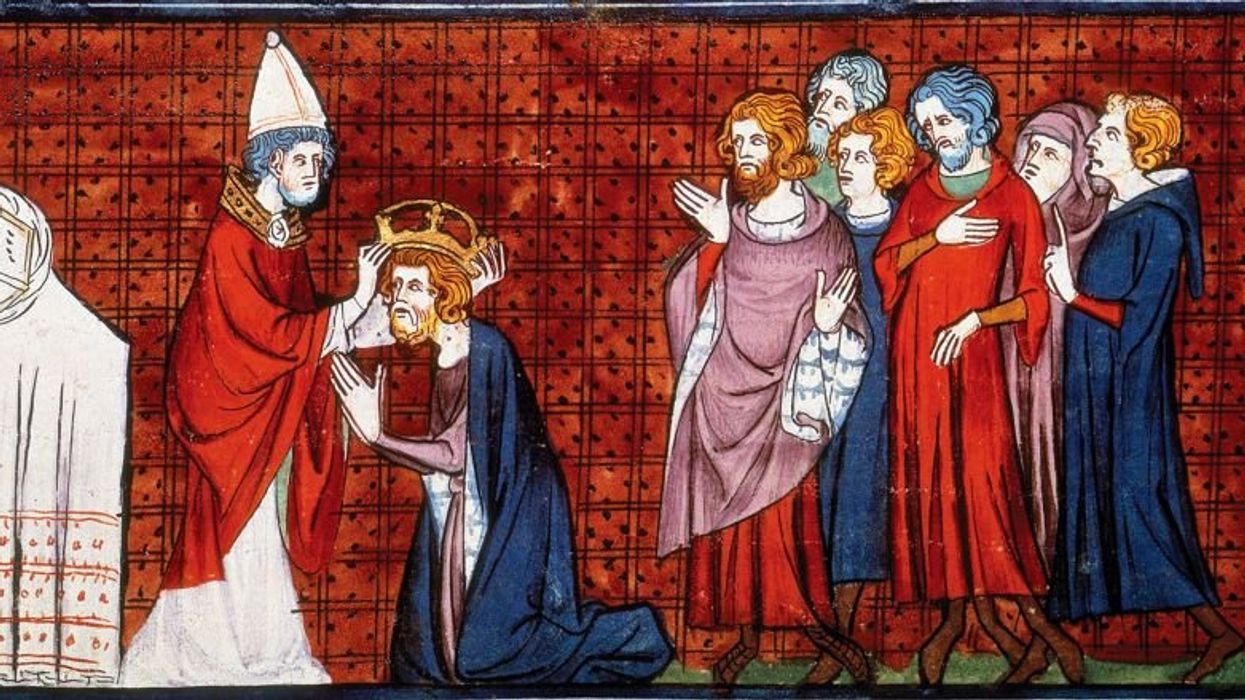
© 2025 Blaze Media LLC. All rights reserved.
ALEXANDRIA, Egypt (AP/The Blaze) — Dozens of grieving Christians returned to pray Sunday in a blood-spattered church where 21 worshipers were killed in a New Years Day suicide bombing, many of them sobbing, screaming in anger and slapping themselves in grief.
The bombing in the Mediterranean port city of Alexandria struck worshipers as they were leaving midnight Mass Saturday about 30 minutes into the new year. Egyptian officials immediately blamed it on foreigners and al-Qaida, even before they completed an investigation. About 100 people were wounded in the attack.
During the Mass on Sunday, authorities deployed heavy security outside the Saints Church including riot police backed by armored vehicles. Riots erupted Saturday in Alexandria when Christians, accusing authorities of not doing enough to protect the minority group, clashed with police and Muslims.
"We spend every holiday in grief," said Sohair Fawzy, a woman who attended the Mass Sunday and who lost two sisters and a niece in the attack.
Inside the church, the floor was still stained with blood, two statues of Jesus and the Virgin Mary were toppled and benches were scattered by the impact of the blast. A red foam sign that read "2011" on the church's door was torn apart. A wooden cross hanging on the church gate was covered with a white sheet stained with victims' blood and bits of human flesh remained stuck on the gate. Young Christian men prevented cleaners from removing the flesh.
"Leave them. This is pure blood," one of the men shouted.
Father Maqar, who led the service, did not give a sermon, preferring to express his grief with silence.
"I tell Christians to pray and pray to ease their agony," he told The Associated Press after the service.
Newly released video shows the impact of the bomber's attack from inside the church where worshipers were celebrating Mass:
Security officials said 25 people have been detained for questioning, but none of them was thought to be linked to the attack. They said the 25 were mostly owners of cars parked outside the church at the time, storekeepers and Muslim neighbors known to be Islamic fundamentalists. The officials spoke on condition of anonymity because they were not authorized to discuss the investigation.
No group has claimed responsibility for the bombing. But President Hosni Mubarak blamed "foreign hands" and the Alexandria governor accused al-Qaida, pointing to threats against Christians in Iraq by the terror network's branch in that country.
Investigators were examining two heads found at the site on suspicion that at least one was the bomber's, Egypt's state news agency MENA reported.
After militants attacked a Baghdad church in October and killed 68 people, al-Qaida in Iraq threatened more attacks and linked the violence to two Egyptian Christian women who sought to convert to Islam after the Coptic Orthodox Church prohibited them from divorcing their husbands who were priests in the church.
The two women have since been secluded by the Church, prompting Islamic hard-liners in Egypt to accuse the Church of imprisoning the women and forcing them to renounce Islam, a claim the Church denies.
Al-Qaida in Iraq has also threatened Egypt's Coptic Orthodox Christian community over the two cases.
Egypt's government has long insisted that al-Qaida does not have a significant presence in the country, and it has never been conclusively linked to any attacks here.
But Egypt does have a rising movement of Islamic hard-liners who, while they do not advocate violence, adhere to an ideology similar in other ways to al-Qaida. There have been fears they could be further radicalized by sectarian tensions. The hard-liners, known as Salafis, have a large and active presence in Alexandria.
The Interior Ministry has said the crime lab investigation found the explosives used in this attack, likely by a suicide bomber, were locally made and filled with nails and ball bearings to maximize casualties.
The attack was the worst against Egypt's Christian minority in a decade. It stoked tensions that have grown in recent years between Christians and the Muslim majority. In expressing condolences and grief for the victims of the attack, Pope Benedict XVI said the attack on worshipers "offends God and all of humanity," and said such attacks were meant to intimidate Christians. During his New Year's appeal Saturday, the pontiff encouraged Christians around the world -- and especially in the Middle East -- to remain strong in the face of intolerance and violence.
The bombing in Alexandria was dramatically different from past attacks on Christians, which included shootings but not serious bombings, much less suicide attacks. Christians have increasingly accused the government of dismissing violence against them or anti-Christian sentiment among Muslim hard-liners.
Christians, mainly Orthodox Copts, make up about 10 percent of Egypt's mainly Muslim population of nearly 80 million people, and they have increasingly complained about discrimination. In November, hundreds of Christians rioted in the capital, Cairo, smashing cars and windows after police violently stopped the construction of a church. The rare outbreak of Christian unrest in the capital left two people dead.
Alexandria, the famed city of antiquity which a century ago was home to a mix of Muslims, Christians, Jews and foreigners, has become a stronghold for Islamic hard-liners the past decade. Stabbings at three Alexandria churches in 2006 sparked three days of Muslim-Christian riots that left at least four dead.
Want to leave a tip?
We answer to you. Help keep our content free of advertisers and big tech censorship by leaving a tip today.
Want to join the conversation?
Already a subscriber?
more stories
Sign up for the Blaze newsletter
By signing up, you agree to our Privacy Policy and Terms of Use, and agree to receive content that may sometimes include advertisements. You may opt out at any time.
Related Content
© 2025 Blaze Media LLC. All rights reserved.
Get the stories that matter most delivered directly to your inbox.
By signing up, you agree to our Privacy Policy and Terms of Use, and agree to receive content that may sometimes include advertisements. You may opt out at any time.
